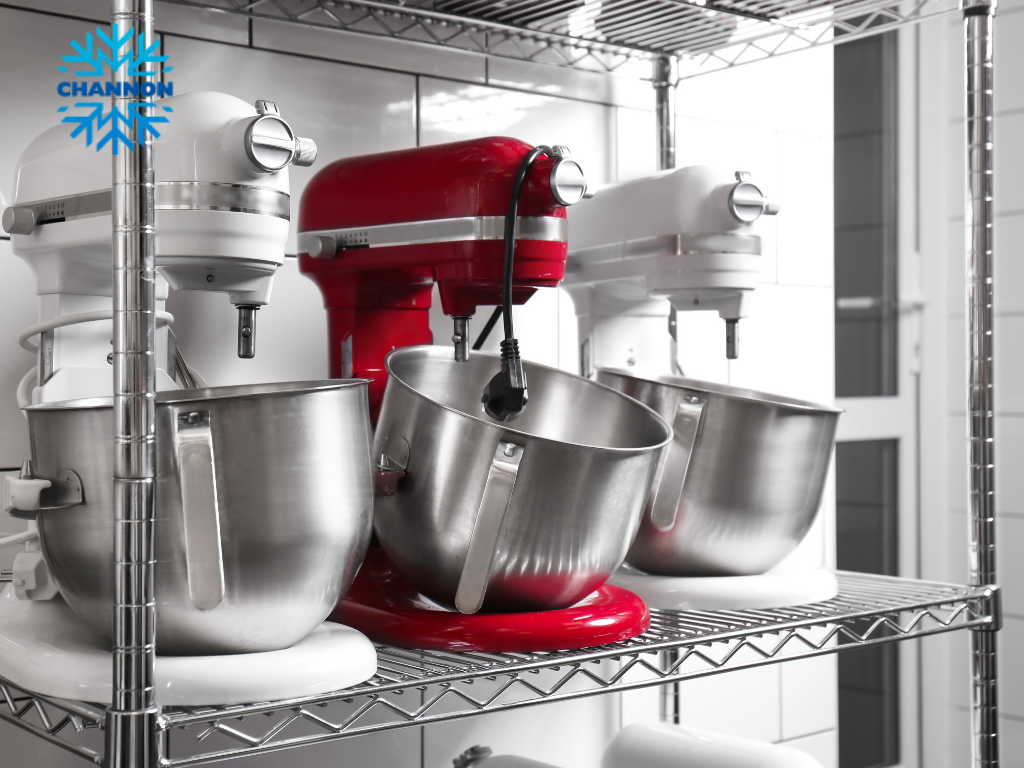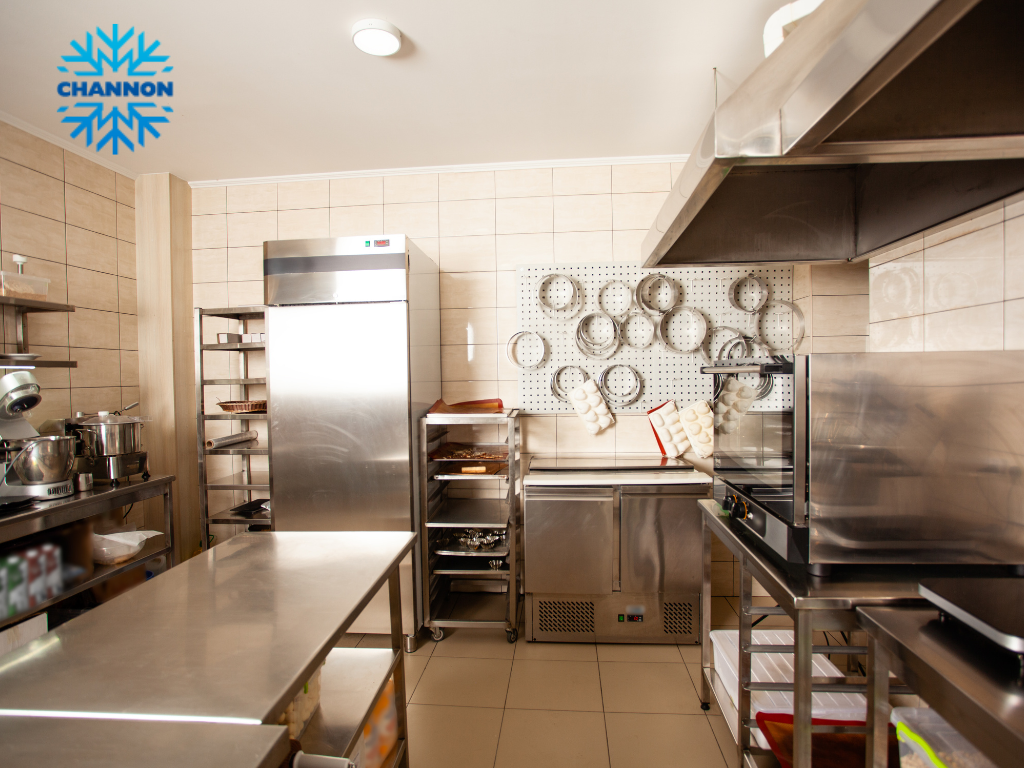Starting a bakery can be an exciting venture, filled with the aromas of fresh bread, pastries, and confections. However, the backbone of any successful bakery lies in its kitchen operations, where the quality of your products is determined. Selecting the right commercial baking equipment is not just a necessity; it’s a pivotal decision that impacts the efficiency, quality, and scalability of your bakery business.
The choice equipment influences everything from the texture of your bread to the crispiness of your pastries. It’s about finding a balance between current needs and future growth, ensuring that your bakery can handle increased demand without sacrificing quality. Moreover, the right equipment can streamline your baking processes, reduce labor costs, and increase your bakery’s overall efficiency.
Investing in high-quality, durable equipment tailored to your bakery’s specific needs can also save you money in the long run. It minimizes downtime due to repairs and replacements, ensuring that your bakery operates smoothly. Thus, carefully selecting your baking equipment is a critical step in setting up a successful bakery, one that serves delectable treats to satisfied customers for years to come.
Understanding Your Bakery’s Needs
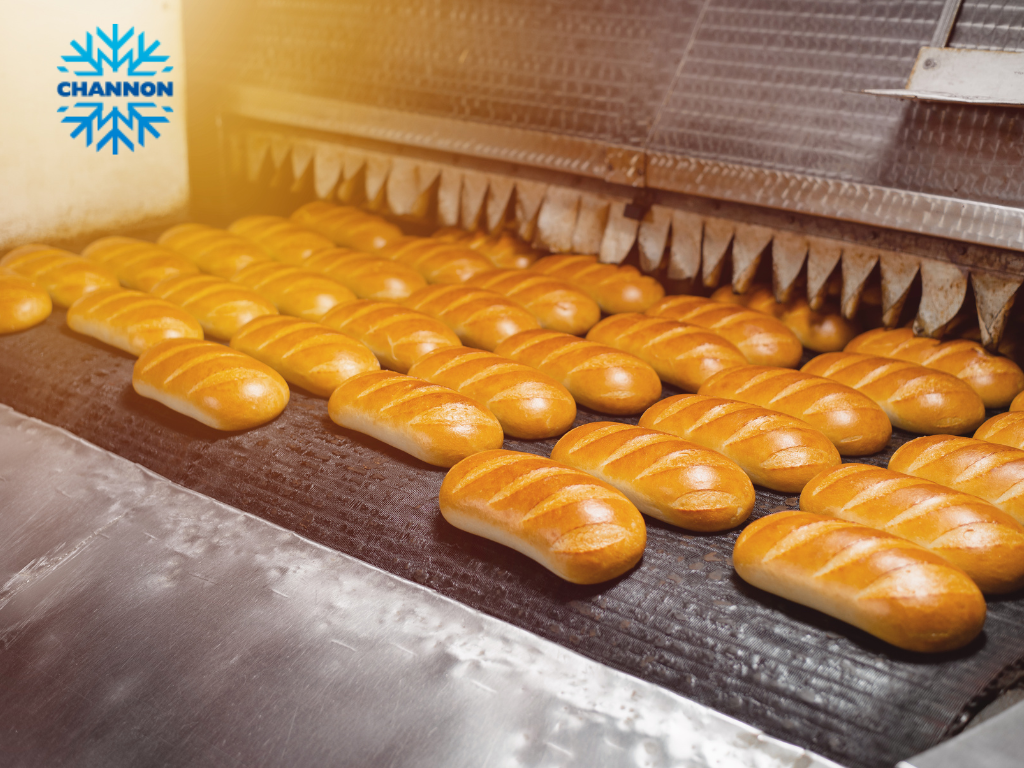
Assessing Your Menu
The first step in choosing your baking equipment is assessing your menu. The types of baked goods you plan to offer will directly influence the equipment you need. For instance, a bakery focusing on artisan bread will require different ovens and mixers compared to a patisserie specializing in delicate pastries and cakes.
- Bread-focused Bakeries: If your bakery emphasizes various types of bread, you’ll need a robust commercial oven that can accommodate the specific baking requirements of different bread. Spiral mixers, known for their efficiency in kneading dough, might be essential.
- Pastry and Confectioneries: Bakeries focusing on pastries and sweets might prioritize precision baking ovens, like convection ovens, which offer uniform heat distribution ideal for sensitive pastries. Planetary mixers, with their versatility for different mixing attachments, would be invaluable for making a wide range of fillings and batters.
Space Considerations
Maximizing your kitchen layout and space is crucial for a functional bakery. Efficient use of space not only affects the workflow but also determines what size and how many pieces of equipment you can accommodate.
- Efficient Layout: Design your kitchen layout to ensure a smooth flow from the prep area to the oven and finally to the cooling and packaging areas. This minimizes bottlenecks and enhances productivity.
- Equipment Size: Consider the dimensions of your kitchen space when selecting equipment. Compact or modular equipment might be ideal for smaller spaces, ensuring that you have all the necessary tools without overcrowding your kitchen.
Core Baking Equipment and Their Uses
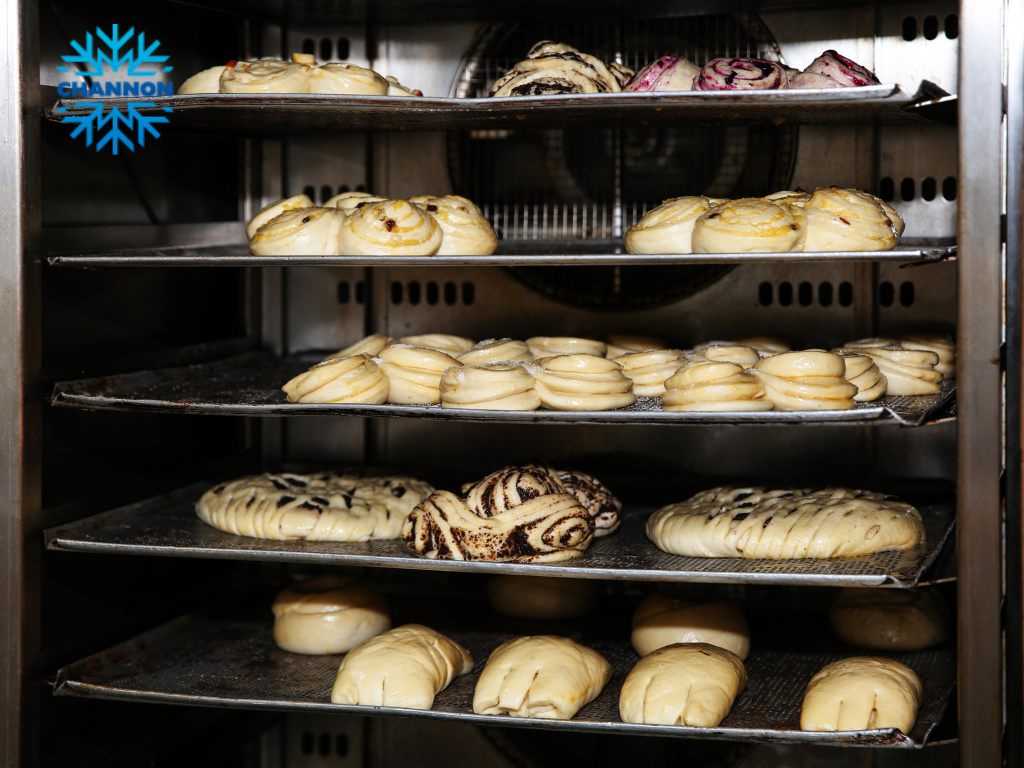
Commercial Ovens
The oven is the heart of any bakery, and choosing the right one is crucial. The type of oven you select should match your baking needs:
- Convection Ovens: Ideal for evenly baked pastries and cookies. They circulate hot air, ensuring uniform baking.
- Deck Ovens: Perfect for artisan bread and pizza. They offer stone baking surfaces and individual temperature settings for each deck.
- Rack Ovens: Suited for high-volume bakeries. These ovens allow baking multiple racks of goods simultaneously, offering consistency and efficiency.
- Revolving Ovens: Best for large quantities of bread or pastries. Their rotating shelves ensure even baking for all items.
Mixers
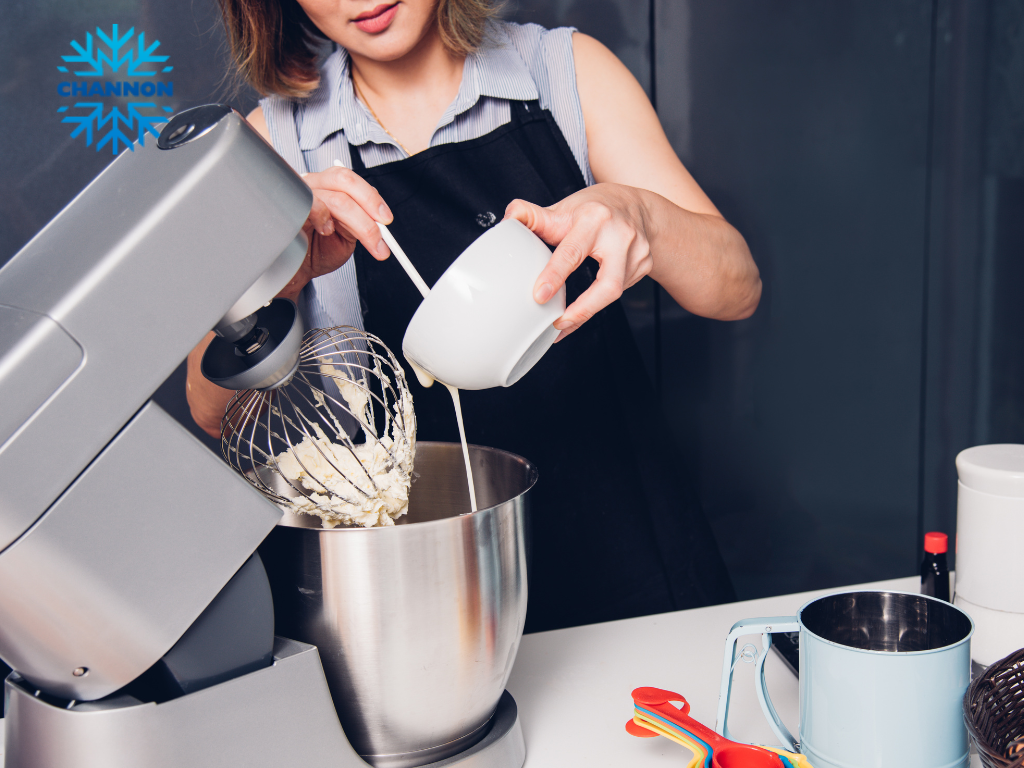
Mixers are indispensable in a bakery for preparing doughs, batters, and fillings:
- Spiral Mixers: Designed specifically for bread dough, they keep the dough cooler and mix it more gently, enhancing gluten development.
- Planetary Mixers: Versatile and ideal for cakes, cookies, and whipped items. They allow different mixing attachments for various tasks.
- Horizontal Mixers: Best for high-volume production. They’re capable of handling large batches of dough, making them a staple in commercial bakeries.
Proofers and Retarders
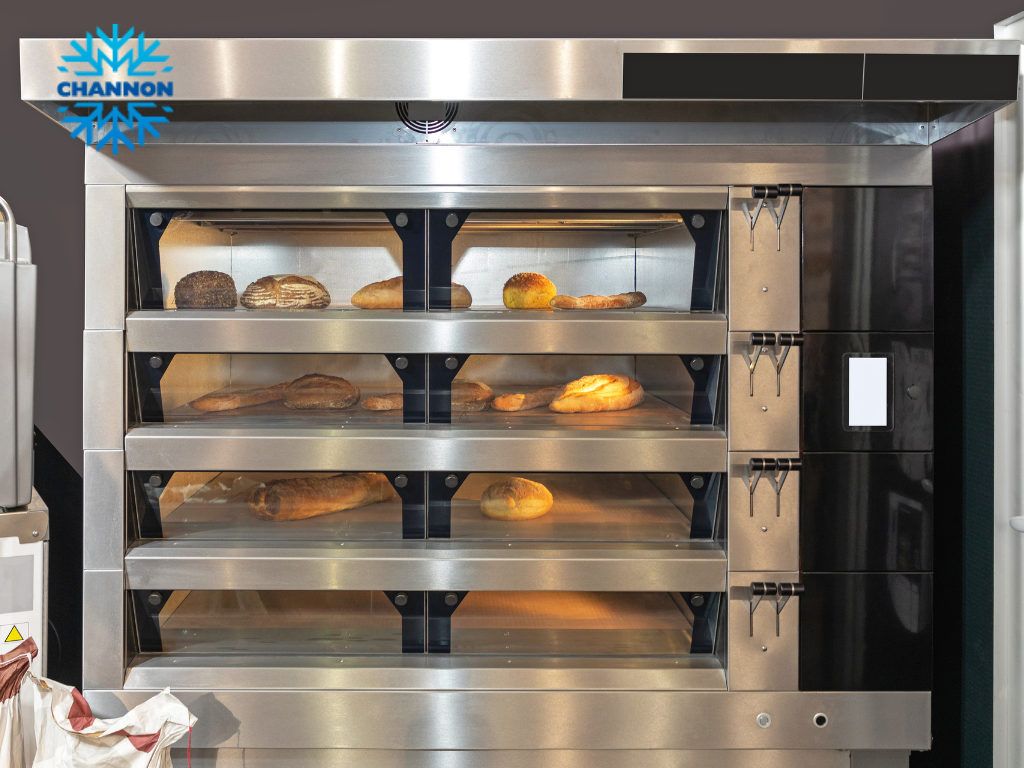
Proofers and retarders are key to controlling dough fermentation:
- The Proofers: Provide the warm and humid environment necessary for the dough to rise properly before baking.
- The Retarders: Used to slow down the fermentation process, allowing for better scheduling flexibility and flavor development in the dough.
Dough Sheeters, Dividers, and Rounders
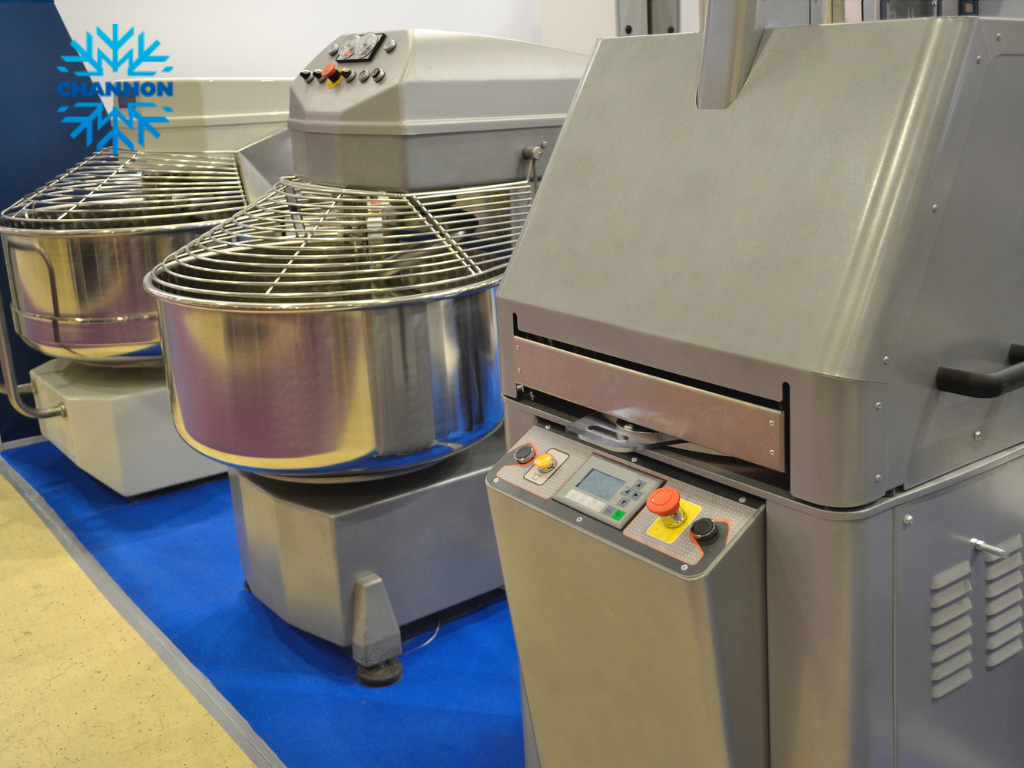
These tools are designed to streamline the baking process:
- Sheeters: Flatten dough to a uniform thickness, essential for pastry and cutout cookies.
- Dividers: Cut large batches of dough into consistently sized pieces, saving time and ensuring uniformity.
- Rounders: Shape divided pieces of dough into balls, preparing them for further processing or final shaping.
Additional Equipment for Efficiency and Quality
Refrigeration Solutions
In a bakery, refrigeration is as crucial as the oven. It’s vital for storing perishable ingredients like dairy and eggs, as well as for dough retardation which affects the flavor and texture of the bread.
- Reach-In Refrigerators and Freezers: Ideal for smaller bakeries or for storing frequently used ingredients. They offer easy access and can be strategically placed for efficient workflow.
- Walk-In Refrigerators and Freezers: Necessary for larger operations that require bulk storage. They are customizable to fit various spaces and storage needs.
- Undercounter Units: Space-saving solutions that can be fitted under workstations for easy access to ingredients.
Work Tables and Stations
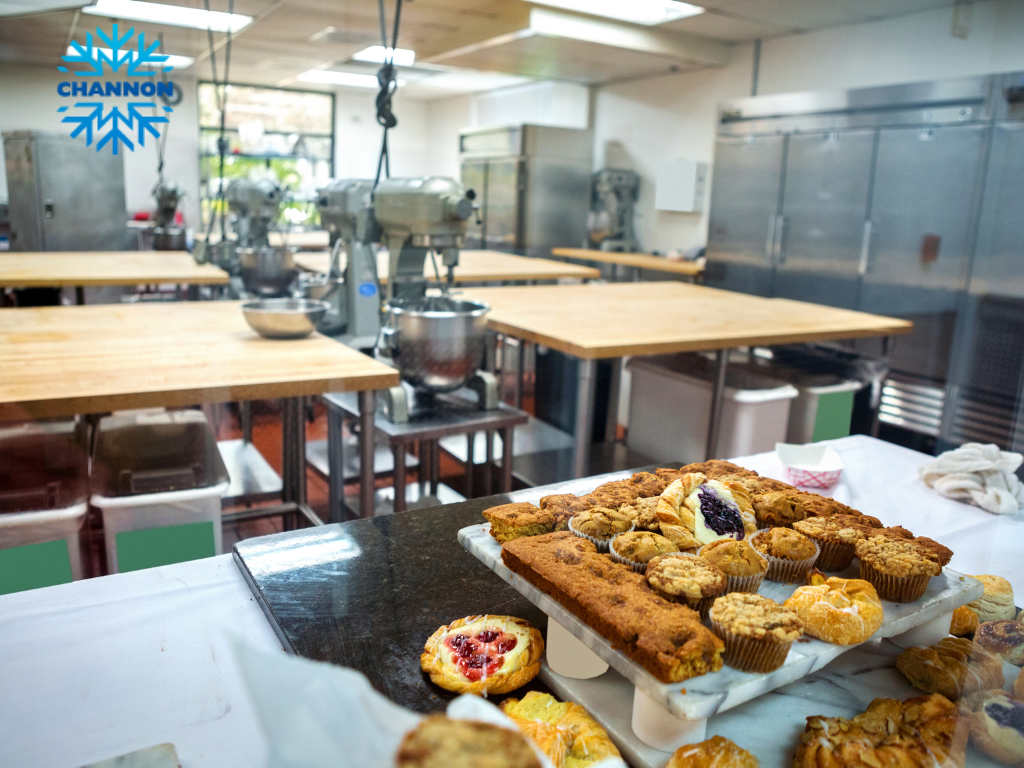
The quality and layout of work tables and stations significantly influence the efficiency of a bakery’s operations.
- Stainless Steel Tables: Preferred for their durability, hygiene, and ease of cleaning. They also withstand heavy use and high temperatures.
- Wooden Tables: Best for dough preparation. Wood provides a natural insulation that’s beneficial for dough manipulation and fermentation.
- Adjustable and Mobile Tables: Offer flexibility in kitchen layouts, allowing for reconfiguration based on the task at hand.
Smallwares and Baking Tools
The right tools in the hands of a skilled baker can create an endless variety of baked goods.
- Mixing Bowls, Whisks, and Spatulas: For preparing batters and doughs. Select durable materials that can withstand frequent use.
- Measuring Tools: Accuracy is key in baking. Invest in a good set of scales, measuring cups, and spoons.
- Baking Pans and Sheets: Variety is crucial, as different baked goods require different materials and shapes for optimal results.
Selecting Your Baking Equipment
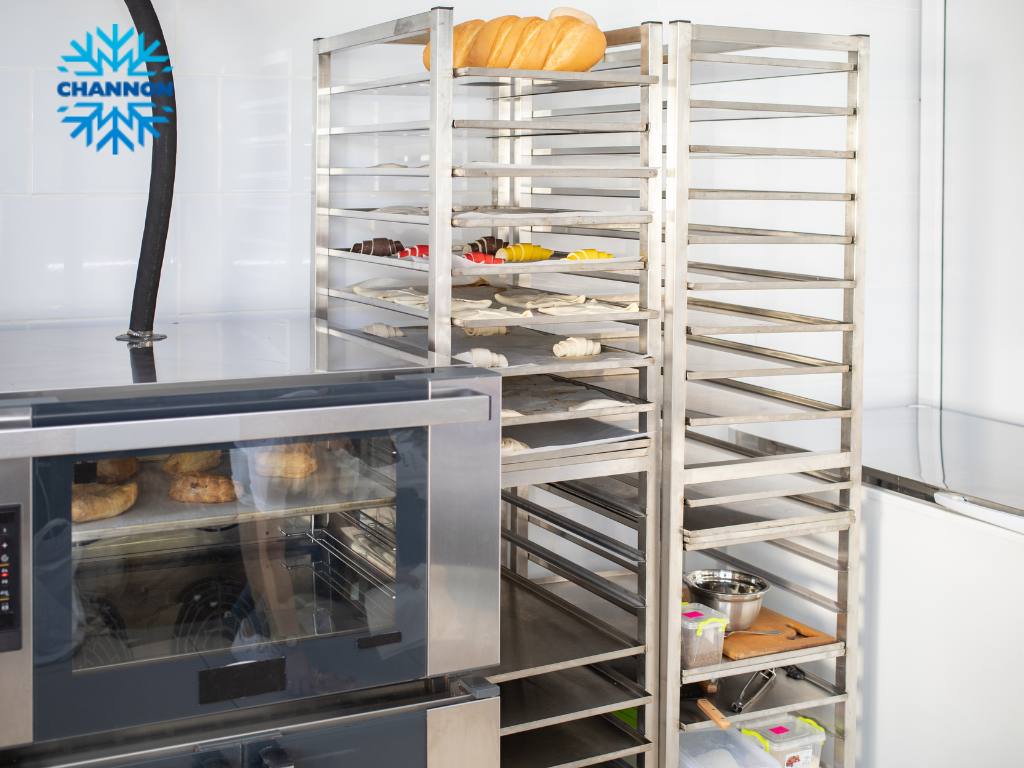
New vs. Used Equipment
- Pros of New Equipment: Comes with warranties, the latest technology, and energy efficiency.
- Cons of New Equipment: Higher upfront cost.
- Pros of Used Equipment: More affordable, immediate availability.
- Cons of Used Equipment: Potential wear and tear, shorter lifespan, and usually no warranty.
When buying used, inspect for cleanliness, signs of wear, and ask for maintenance records to ensure the equipment has been well-cared for.
Evaluating Equipment Suppliers
Choosing the right supplier is as important as selecting the equipment itself.
- Reputation and Reliability: Look for suppliers with positive reviews and a good track record.
- After-Sales Support: Ensure they offer prompt servicing, parts, and support.
- Product Range: Select suppliers who offer a wide range of products and brands to compare options effectively.
Considering Your Budget
- Cost vs. Quality: Invest in key pieces that affect the quality of your baked goods. Consider financing or leasing options for expensive equipment.
- Long-Term Value: Calculate the total cost of ownership, including maintenance, energy use, and potential downtime.
Installation and Setup
Preparing for Delivery
- Space Preparation: Ensure your bakery space is ready, with the necessary utilities and space for the new equipment.
- Delivery Access: Verify that there’s clear access for the delivery and installation of large equipment.
Professional Installation
- Rely on professionals for installation to ensure that the equipment is set up correctly and safely. It can also prevent voiding warranties.
Conclusion
Selecting the right commercial baking equipment is foundational to the success of your bakery. It influences not only the quality of your products but also the efficiency of your operations and your bakery’s potential for growth. Investing time and research in choosing equipment that aligns with your bakery’s needs will pay dividends in the long run. Remember, the goal is to create a bakery that not only produces delicious baked goods but also operates smoothly and grows sustainably.
